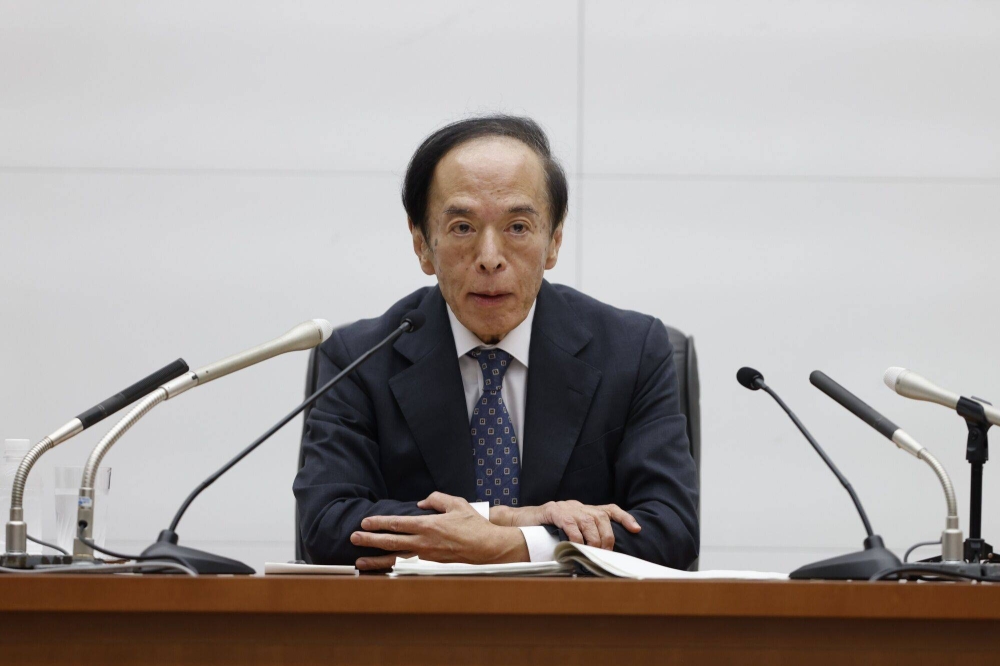Bank of Japan Gov. Kazuo Ueda said on Saturday considerations over the central bank’s finances do not prevent it from implementing necessary monetary policy steps.
Ueda said there was “still a distance to go” before the BOJ exits ultraloose monetary policy as sustainable and stable achievement of its 2% inflation target has yet to come in sight.
But the current distance to an exit means it was the right time to discuss how the central bank’s monetary policy conduct could affect its finances, he said.
While the BOJ’s profits could face “downward pressure” during an exit from ultraeasy policy, its interest income is also likely to increase as its current government bond holdings are replaced by higher-yielding bonds, Ueda said.
It was therefore not possible to accurately predict to what extent a future exit could affect the BOJ’s finances, he added.
“The objective of the bank’s monetary policy is achieving price stability, which is its mission as stipulated by law. Considerations of the bank’s finances, etc. do not prevent it from implementing necessary policies,” Ueda said in a speech at an annual meeting of the Japan Society of Monetary Economics.
“A central bank’s ability to conduct monetary policy is not impaired by a temporary decrease in its profits and capital, provided that it conducts appropriate monetary policy,” he said.

